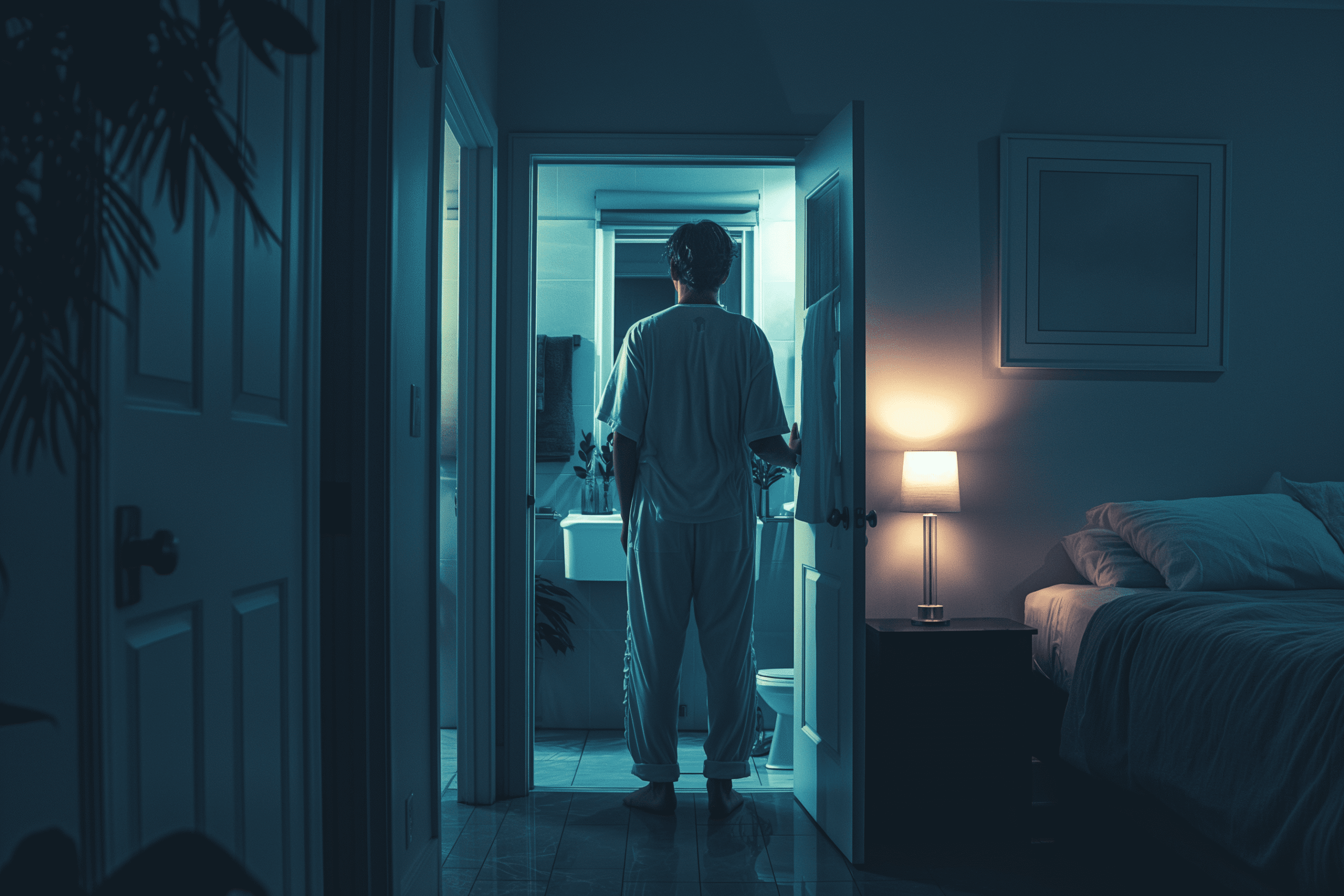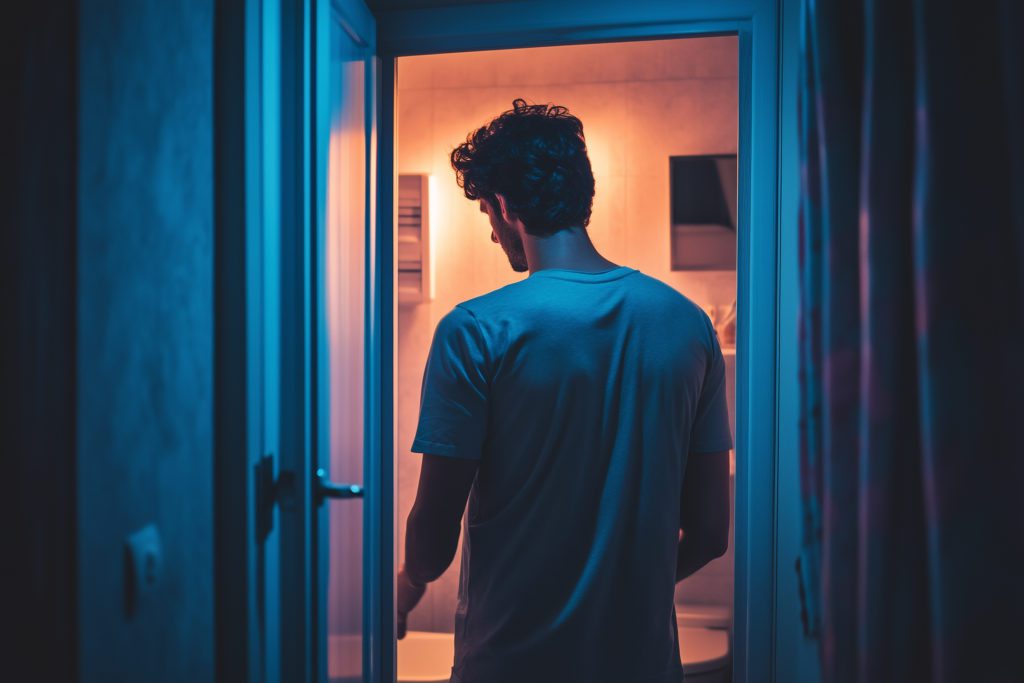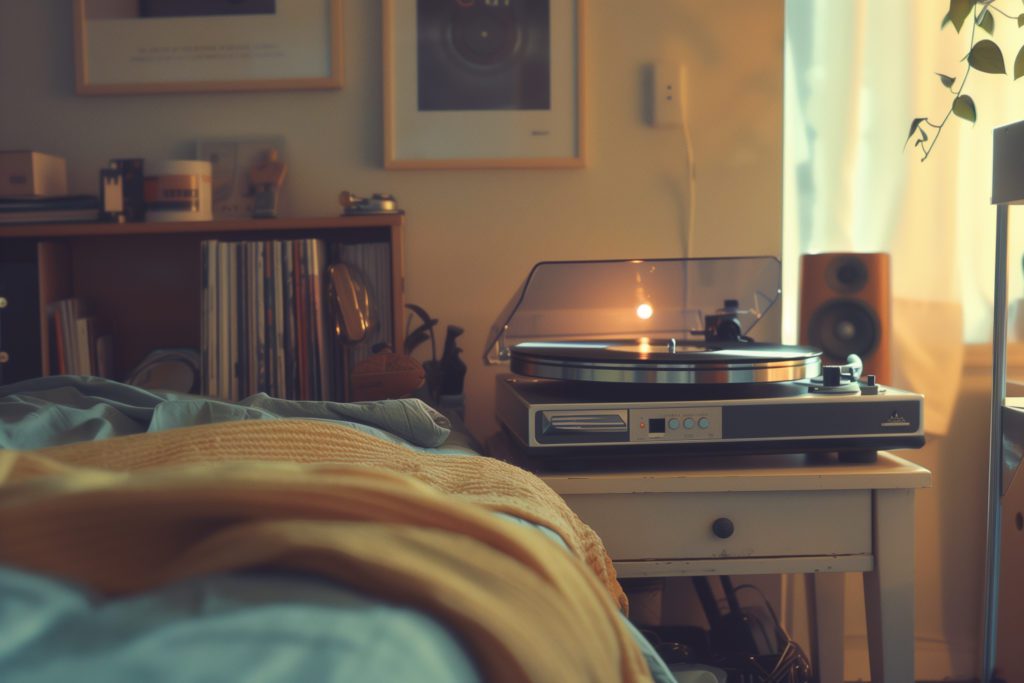
6 Dietary Changes to Reduce Frequent Nighttime Urination
Struggling with sleep interruptions from frequent nighttime trips to the bathroom? Discover how simple dietary changes can improve your sleep quality and reduce bathroom visits.

Discover how your diet influences your nightly interruptions
Night after night, the journey from bed to bathroom becomes a relentless routine. You might blame it on aging or an overactive bladder, but have you ever suspected your kitchen could be the co-conspirator in your nightly escapades?
This article explores how certain foods and drinks exacerbate frequent nighttime urination and outlines dietary tweaks that could help you reclaim the night. We’ll uncover the surprising link between your meals and your sleep disruptions, and learn how to fine-tune your diet for a night of deeper, more peaceful sleep.
Countless toilet trips could be seriously disrupting your sleep
Nocturia, or frequent nighttime urination, might sound like a straightforward nuisance: you sleep, you wake, you pee, and repeat. But it's far more than just an irritating disruption. This condition forces many out of the cozy confines of their beds multiple times a night, fragmenting what should be restful slumber.
And when sleep is chopped into bits, it's not just your mood that sours—research demonstrates that a lack of quality shut-eye can sap your energy, dull your mental sharpness, and generally drag down your health.
So, what's behind this bothersome bathroom ballet? Causes range from the benign to the serious: drinking too much liquid before bed, particularly diuretics like coffee and alcohol, can send you sprinting to the loo. But it's not always about what you drink—medical conditions such as diabetes, bladder infections, or prostate issues (comprehensive list here) can also play pivotal roles. Even natural changes in hormone levels as we age, for example when women experience menopause, can decrease our body’s ability to hold fluids overnight, leading to more frequent urges to urinate.
The stakes are higher than simple sleep loss; missing out on deep REM sleep can throw off your whole next day and cumulatively impact your health. That’s why understanding what drives your nocturnal awakenings is the first step toward reclaiming a full night's sleep.
How diet influences sleep and urination
Ever wondered why some nights are more interrupted by bathroom visits than others? Your diet before hitting the sack plays a pivotal role. Foods and drinks can significantly impact both the quality of your sleep and the frequency of nighttime urination. Making the right dietary choices can help you minimize those disruptive trips to the bathroom and enhance your overall sleep quality.
Here are six simple dietary changes you can try if you want to reduce frequent nighttime urination:
- Limit diuretics before bed
You might love your evening cup of coffee or a nightcap, but surely you know by now that alcohol and caffeine can mess with your sleep. They're diuretics, which means they make you pee more. Cutting them out a few hours before you hit the sack can help keep your sleep uninterrupted. Instead of coffee or a cocktail, maybe a soothing herbal tea or warm milk could be your pre-bedtime drink.
- Reduce salt intake
Ever noticed you feel a bit bloated after a salty meal? That’s because high salt intake can cause your body to hold onto water, which might have you running to the bathroom more often at night. Try easing up on the salt shaker and those salty processed snacks in the evening. Opt for fresh, unprocessed foods for dinner to keep your midnight bathroom visits at bay. - Increase water during the day, not night
Hydration is key, but timing is everything. Unsurprisingly, drinking water close to bedtime can disrupt your sleep—but the paradox is that dehydration can keep you awake. The solution? Loading up on water during the day and tapering off as night falls can help you stay hydrated without disrupting your sleep for bathroom breaks. Think of it as front-loading your fluids to avoid a full bladder when you're trying to catch some Zs. - Opt for complex carbohydrates
Foods that release energy slowly help stabilize your blood sugar levels, which can prevent sleep disruptions. Whole grains, for instance, are great for sustained energy. Plus, they're kinder on your bladder than spicy or acidic foods, which means fewer wake-up calls in the middle of the night. - Incorporate magnesium-rich foods
Magnesium isn’t just good for your bones; it’s a muscle relaxant, which can help you unwind and sleep better. Snack on almonds, nibble some spinach, or slice up a banana as part of your evening meal or snack. These foods are not only packed with magnesium but are also gentle on your bladder. - Avoid acidic and spicy foods
Love tomatoes and hot sauce? They might not love you back at bedtime. Acidic and spicy foods can irritate your bladder, increasing the likelihood of a nighttime trip to the bathroom. It might be a good idea to keep these to earlier in the day and keep your dinner bladder-friendly.
These changes aren’t just about cutting things out; they’re about balancing what works for your body’s needs, helping you to sleep better and wake up feeling refreshed.
Remember, while dietary changes can have a positive impact, they're only part of the solution. If frequent nighttime urination persists, it might be worth discussing with a healthcare provider to rule out any underlying conditions.
Tracking your diet’s impact on sleep and nighttime urination
To truly understand how your diet affects your sleep and frequent nighttime urination, maintaining a food diary alongside using a sleep tracking app is key. Document everything you consume and note your sleep and wake times, specifically recording any instances of nocturnal awakenings.
While the food diary focuses on your dietary habits, the sleep tracker will provide insights into your sleep patterns and how they correlate with your diet. This dual-tracking approach allows for a comprehensive analysis, helping you pinpoint which foods might be disrupting your sleep or increasing the need to urinate at night.
The takeaway: avoid getting a takeaway before bedtime
As we’ve discovered, your diet is closely tied to how well you sleep and how often you might find yourself waking up at night. Particularly, indulging in late-night takeaways, which are often laden with heavy carbs, excessive sodium, and spices, can be a recipe for sleep disturbances and frequent nighttime urination.
Adjusting what you eat, particularly in the hours before bed, can significantly reduce your trips to the bathroom and improve your sleep quality. Experiment with the dietary changes suggested and use tools like food diaries or tracking apps to find the balance that works best for you.
Here's to deeper sleep and fewer interruptions—your path to a more restful night starts on your plate.
FAQ
How long before bed should I stop drinking liquids?
A good rule of thumb is to stop drinking large amounts of fluids 2–3 hours before bed to allow your body time to process them.
What’s a good nighttime snack that won’t make me wake up to pee?
A small handful of nuts, a banana, or whole-grain crackers—they provide slow-digesting energy, help relax muscles, and won’t overstimulate the bladder.
Why do I wake up more to pee as I get older?
As we age, our bodies produce less of the hormone vasopressin, which helps retain fluids overnight. This means your bladder fills up faster, making nighttime bathroom trips more frequent.
Is it normal to wake up once or twice to use the bathroom at night?
Yes! Waking up once per night is common. But if you’re up multiple times and it affects your sleep, it may be time to adjust your diet or talk to a healthcare professional.
Why do I sometimes feel like I have to pee at night, but not much comes out?
This can happen due to bladder irritation from acidic or spicy foods, stress, or drinking alcohol or caffeine before bed. Your bladder may feel full even when it isn’t.
Is sleeping position related to how often I wake up to pee?
Yes! Lying flat can redistribute fluid in your body, which might lead to more urine production. Elevating your legs for a while before bed can help reduce this effect.

Written by
Georgia Austin
Professionally trained copywriter, editor, and content marketing strategist with over 7 years of experience—working with brands like Nike, Siemens, Toshiba, Tommy Hilfiger, Culture Trip, and Klook.
Download Pillow
Get help
Press & News
Legal
Connect
X (Twitter)
Company
Copyright © Neybox Digital Ltd.



